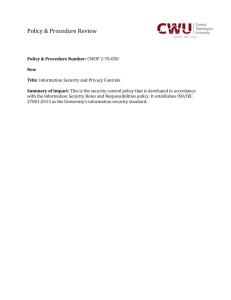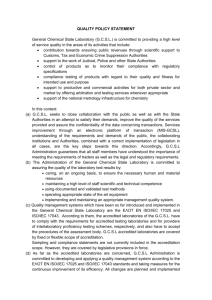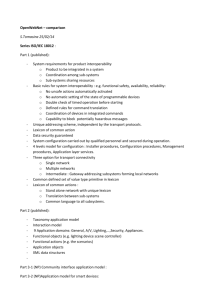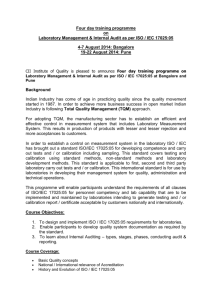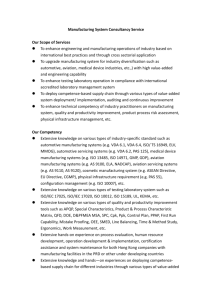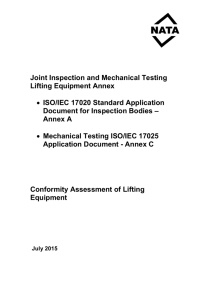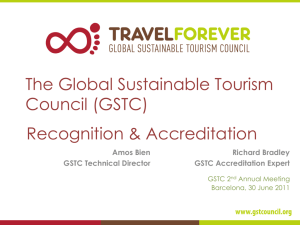1126259
advertisement
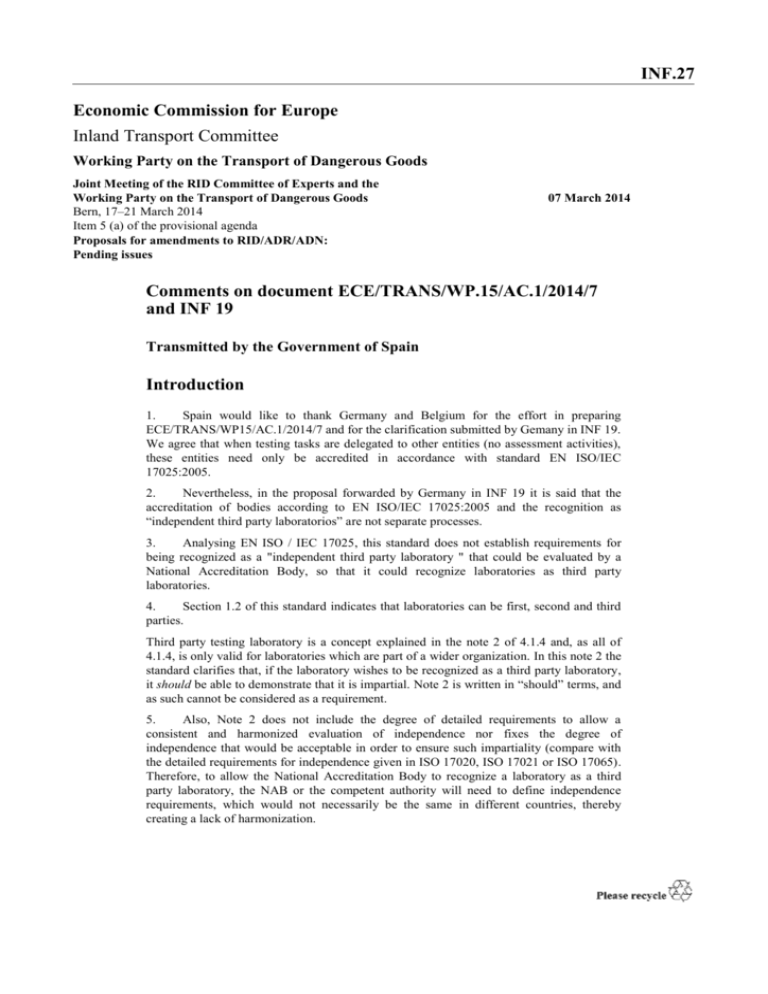
INF.27 Economic Commission for Europe Inland Transport Committee Working Party on the Transport of Dangerous Goods Joint Meeting of the RID Committee of Experts and the Working Party on the Transport of Dangerous Goods Bern, 17–21 March 2014 Item 5 (a) of the provisional agenda Proposals for amendments to RID/ADR/ADN: Pending issues 07 March 2014 Comments on document ECE/TRANS/WP.15/AC.1/2014/7 and INF 19 Transmitted by the Government of Spain Introduction 1. Spain would like to thank Germany and Belgium for the effort in preparing ECE/TRANS/WP15/AC.1/2014/7 and for the clarification submitted by Gemany in INF 19. We agree that when testing tasks are delegated to other entities (no assessment activities), these entities need only be accredited in accordance with standard EN ISO/IEC 17025:2005. 2. Nevertheless, in the proposal forwarded by Germany in INF 19 it is said that the accreditation of bodies according to EN ISO/IEC 17025:2005 and the recognition as “independent third party laboratorios” are not separate processes. 3. Analysing EN ISO / IEC 17025, this standard does not establish requirements for being recognized as a "independent third party laboratory " that could be evaluated by a National Accreditation Body, so that it could recognize laboratories as third party laboratories. 4. Section 1.2 of this standard indicates that laboratories can be first, second and third parties. Third party testing laboratory is a concept explained in the note 2 of 4.1.4 and, as all of 4.1.4, is only valid for laboratories which are part of a wider organization. In this note 2 the standard clarifies that, if the laboratory wishes to be recognized as a third party laboratory, it should be able to demonstrate that it is impartial. Note 2 is written in “should” terms, and as such cannot be considered as a requirement. 5. Also, Note 2 does not include the degree of detailed requirements to allow a consistent and harmonized evaluation of independence nor fixes the degree of independence that would be acceptable in order to ensure such impartiality (compare with the detailed requirements for independence given in ISO 17020, ISO 17021 or ISO 17065). Therefore, to allow the National Accreditation Body to recognize a laboratory as a third party laboratory, the NAB or the competent authority will need to define independence requirements, which would not necessarily be the same in different countries, thereby creating a lack of harmonization. INF.27 6. Besides, the term “recognition” used in Note 2 does not refer in our view to the Accreditation Body, because in such a case the Standard would have be written in “shall” terms i.e.: “if the laboratory wishes to be recognized a third party laboratory it shall have to……” From our point of view, that “recognition” is referred to the market or to the customers of the laboratory but not to the Accreditation Body. 7. In addition, standard EN ISO / IEC 17000 in its section 2.4 defines the activities of third-party assessment, as "conformity assessment activity carried out by a person or a body that is independent of the person or organization that provides the object and also of the interests of the user of this object". It is difficult to know what should be understood by the Accreditation Body as "independent" to declare and recognize that a laboratory is "independent" without requirements that define the degree of independence. In this regard, the standard EN ISO/17000 in its Note 1 makes clear that the criteria for independence of conformity assessment bodies must be established in the standards, which does not occur in the case of EN ISO / IEC 17025. 8. Standards EN ISO / IEC 17065, in its section 6.2.2.4 b), and EN ISO / IEC 17020, in its section 6.1.12, establish the requirement that the conformity assessment body (in the first case the "certification body" and in the second the "inspection body"), must ensure the impartiality of its subcontractors and external personnel who can influence the evaluation activities. For this, the body responsible (certification body or inspection body, in each case), will take the necessary measures to ensure this in the particular case concerned (customer-item to test) and demonstrate it to the Accreditation Body . 9. Therefore we do not believe that the process of recognition of a third party laboratory should be linked to its accreditation under EN ISO / IEC 17025. 10. The recognition of "third party laboratory" object of this discussion should, in our view, not be the responsibility of the National Accreditation Body. It should be the responsibility of the inspection body responsible for stating compliance, which should require the testing laboratories accredited under EN ISO / IEC 17025 to demonstrate them that they are independent of the items to be tested and thus be recognized by them as "thirdparty laboratories" for that concrete test (item- client). Proposal Insert the following text after the first sentence of RID/ADR 1.8.6.4.1 (text deviating from INF 19 sticken out/in italics): “In the case of separate accreditation, this entity shall be duly accredited according to standard EN ISO/IEC 17025:2005 and shall thus be recognised act as a third-party testing laboratory in order to perform testing tasks in accordance with 1.8.7.2.2 (b) and (e), 1.8.7.4.2 (a) and 1.8.7.5.1 (b), which do not include conformity assessments and the issuing of certificates, or it shall be accredited according to standard EN ISO/IEC 17020:2012 (except No. 8.1.3)." 2
